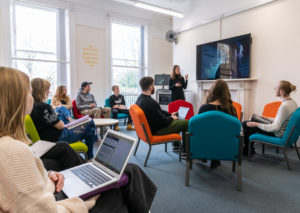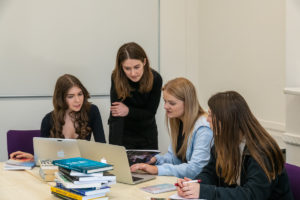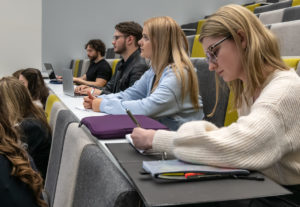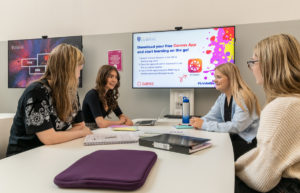How you'll learn
The programme consists of 1 x 30 credits and 1 x 15 credits core modules in Semester 1 and 1 x 30 credits module in Semester 2, plus 1 x 60 credits Dissertation module in the summer months.
The remaining 45 credits (15 in Semester 1 and 30 in Semester 2) will be supplemented by 3 x 15 credit optional modules available from the department of Communication and Media.
You will be advised which of these modules are particularly relevant to Screen Studies and its various learning outcomes but as Screen Studies, while more information will be detailed on the programme’s CANVAS page.
Each module is taught on a weekly basis, either as part of 3-hour or 2-hour blocs and in the form of a workshop, where formal lectures and interactive engagement with students are combined to provide an active learning environment and to encourage knowledge sharing and peer learning.
Independent study is fostered by progressively more demanding essay-work and specified preparation for workshop or seminars, including a range of increasingly advanced bibliography to be explored and consulted.
For the 30 credit core modules independent study is expected to be approximately 16 hours a week over a 15-week combined semester and assessment period. For the 15 credit modules it is expected to be 8 hours a week.
In an ideal scenario, you will have approximately 7-8 hours a week in class as part of three modules that correspond to 60 credits, with the expectations that you will be able to dedicate approximately 30 hours to independent learning, consisting primarily of doing the key readings for each session, delving into secondary readings in your areas of interest, viewing important visual material (films, TV shows), researching and drafting assignments.
How you're assessed
The course’s modules are assessed in a wide variety of methods that allow you to test their learning to specific ‘real-world’ contexts. Some of these assessments include:
- Project pitch – a live presentation of an industry focused project (Screen Industries)
- Wide Readership article – an article modelled on The Conversation journal (Screen Industries)
- TV viewing research journal – a theoretically informed understanding of TV practices (Redefining TV)
- Workshop run – taking charge of a class and develop focus group skills (Screen Industries)
- Research Methods comparison (compare and contrast two pieces of work designed through different methods (Researching Screen)
These methods are also supplemented with more traditional methods of assessment, including research-led essays, essay proposals and annotated bibliographies. Finally the core modules also include formative assessments in which the feedback is intended to help improve future work without a summative mark.
Liverpool Hallmarks
We have a distinctive approach to education, the Liverpool Curriculum Framework, which focuses on research-connected teaching, active learning, and authentic assessment to ensure our students graduate as digitally fluent and confident global citizens.
The Liverpool Curriculum framework sets out our distinctive approach to education. Our teaching staff support our students to develop academic knowledge, skills, and understanding alongside our graduate attributes:
- Digital fluency
- Confidence
- Global citizenship
Our curriculum is characterised by the three Liverpool Hallmarks:
- Research-connected teaching
- Active learning
- Authentic assessment
All this is underpinned by our core value of inclusivity and commitment to providing a curriculum that is accessible to all students.









